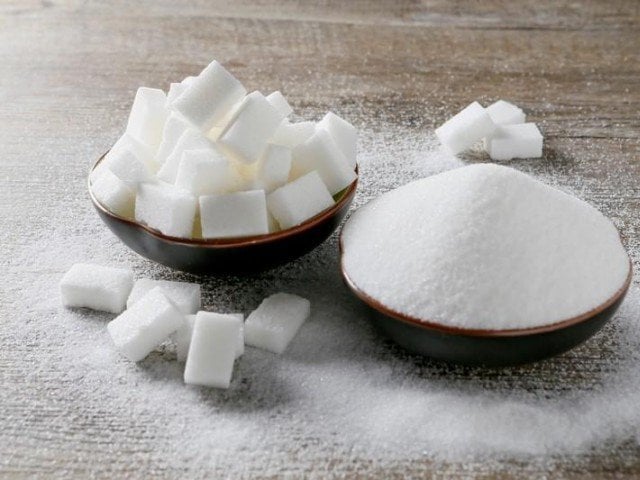
The federal government on has challenged the Sindh High Court (SHC) judgment against the sugar commission report in the Supreme Court.
Attorney General for Pakistan (AGP) Khalid Javed Khan, on behalf of the federal government, on Thursday filed a petition against the ruling on August 17, saying that the SHC quashed the fact-finding report as well as the notifications for the inquiry commission under the Pakistan Commissions of Inquiry Act, 2017.
The government’s petition added that SHC quashed the fact-finding report and the notifications on technical grounds, as that the summary for constituting the commission was initiated by interior rather than the Cabinet Division and the notifications were published belatedly in the official gazette.
This was despite the fact that the summary for appointing all seven members of the commission was duly approved by the federal cabinet and none of the sugar manufacturers, including the respondents ever did or could claim lack of knowledge of the proceedings of the commission, which also fully interacted with the Pakistan Sugar Mills Association (PSMA) of which the respondent manufacturers were members, nor could they show any prejudice whatsoever owing to the fact that the summary was initiated by Interior Division, which in any case merged in the final approval of the cabinet, nor due to any delay in publication of notification in the gazette, the petition said.
“It is submitted with profound respect and humility that the bench grossly erred in law and facts and based the judgment on completely unjustified assumption that the aggrieved party in this case is the group of manufacturers of sugar,” the petition said.
“The glaring yet completely ignored reality is that the real and truly aggrieved party in this matter are millions of captive consumers who are being grossly overcharged the price of an essential commodity ie sugar by a cartel of sugar manufacturers acting in concert and completely dominating the market,” it said.
“Besides those consumers, there are thousands of poor growers of sugarcane who are also the aggrieved party as they have been consistently denied adequate payments for the sugarcane grown by them with their untiring efforts,” it added.
The petition said that the public at large also suffered billions in evaded taxes owing to under-reporting of the actual production by the manufacturers. “It was in order to redress these grievances of the public at large and to make an essential commodity available to them at a reasonable cost while ensuring swift recovery of public revenue that an impartial commission of inquiry comprising of public servants of unimpeachable reputation were appointed by the federal government to unravel the true facts and expose the inner workings of this industry,” the petition continued to say.
“Some of the members of the commission were attributed bias on the sole ground that after initial proceedings they discovered that the only source of all information being the manufacturers themselves, this required an in-depth fact-finding.”
It is contended that notifications dated March 16, 2020 and March 25, 2020 were issued in accordance with Section 3 of the Commission of Inquiry Act 2017 and subsequent publication in official gazette on July 6, 2020 did not affect its validity nor resulted in the quashment or nullification.
It was also submitted that the summary initiated by a division before the cabinet was an internal procedural matter and merged in the final decision of the cabinet, which was binding, irrespective of which division initiated the summary.
“As it was done mistakenly, it was a mere irregularity, which neither affected nor caused prejudice to any party including the respondents. Indeed no prejudice was even claimed or asserted by the manufacturers before the high court,” the petition said.
It stated that mere irregularity in issuance of notifications dated March 16, 2020 and March 25, 2020 and their publication in official gazette on July 6, 2020 was eclipsed by substantial compliance of the law and the rules and the great public harm that this whole exercise sought to address.
“subsequent addition of a member in the commission after approval by the cabinet vide notification dated March 25, 2020 did not violate the provisions the Pakistan Commission of Inquiry Act, 2017 and does not make the Report of the Commission illegal?”
The members of the committee had for valid reasons disclosed the need for constitution of commission, said the petition, adding that this indicated neither bias nor prejudice to anyone. “Indeed that was the most appropriate act in the circumstances and duly explained and justified in the letter addressed by the committee. It was done in public interest so that a thorough probe could be conducted.”
The petition emphasised that the report of the commission was merely a fact-finding exercise, carried out by the commission and could not be set aside on the basis of apprehensions of respondents against whom no final determination of rights or liabilities had been made nor any action had been taken.
The petition noted that the fact-finding report by the commission of inquiry was in accordance with the mandate given to it under the Pakistan Commission of Inquiry Act, 2017. The commission, it added, met stakeholders including the Pakistan Sugar Mills Association, which claimed to represent the sugar manufacturers, including the respondents.
“The commission was not legally required to individually hear all parties/respondents under the Commission of Inquiry Act 2017. Even, otherwise, commission had the mandate to regulate its own procedure under the Pakistan Commission of Inquiry Act 2017,” it said.
The petition stated that the exercise undertaken by the commission could not be aborted or stopped on the assumption that the reputation of the respondents might be affected. “The remedy for damage to the reputation, if any, could lie in a suit but not in writ jurisdiction nor any finding on disputed facts could be given in writ jurisdiction,” it added.
“The federal government or its functionaries are under obligation to act in public interest and probe all cases and to promptly follow up the proceedings before departments, authorities or bodies as it directly affects the fundamental rights of the people at large,” said the petition.


















COMMENTS
Comments are moderated and generally will be posted if they are on-topic and not abusive.
For more information, please see our Comments FAQ